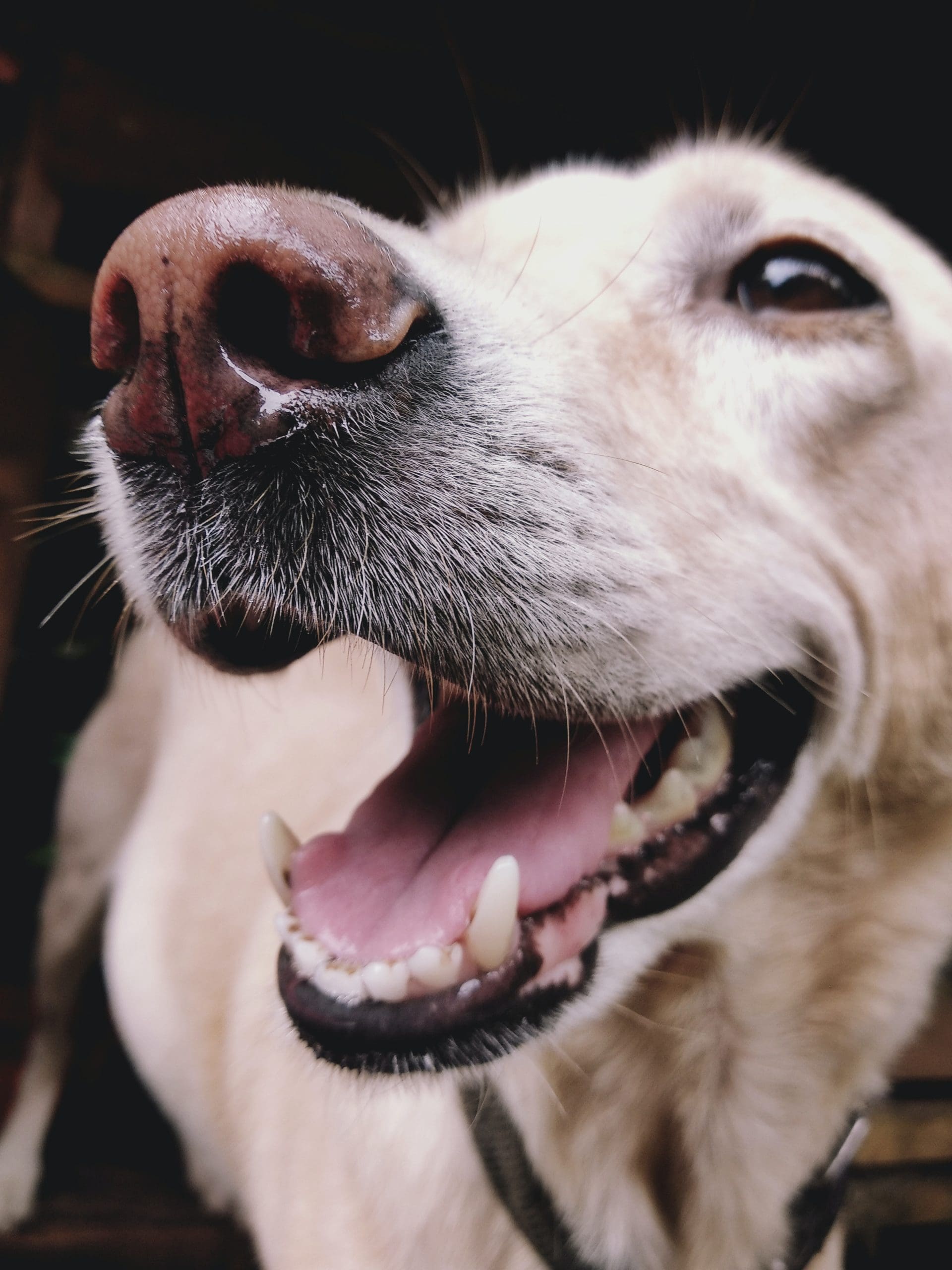What Home Remedy Is Good For A Dog With Bloody Diarrhea?
Post Date:
December 10, 2024
(Date Last Modified: November 13, 2025)
Bloody diarrhea in dogs can range from mild irritation to life-threatening illness, and recognizing what you see and how the dog behaves helps decide safe next steps. Careful observation and appropriate short-term measures can stabilize many dogs while arranging professional assessment.
Defining bloody diarrhea in dogs — why clarity matters
Bloody diarrhea refers to stool that contains visible fresh blood, dark digested blood, or mucus mixed with feces, and it can originate anywhere along the gastrointestinal tract.
When stool frequency is markedly higher than the dog’s normal pattern—often defined as more than 3 bowel movements in 24 hours—this change is clinically significant and warrants closer monitoring and possible testing [1].
Fresh, bright red blood typically suggests bleeding from the lower gastrointestinal tract, whereas dark or tarry stool suggests digested blood from the upper tract.
Common causes include abrupt diet change, intestinal parasites, bacterial or viral infections, ingestion of toxins or foreign material, and hemorrhagic gastroenteritis among other conditions.
Risk factors that increase the likelihood of severe disease include young age, lack of parasite prevention, certain breeds with predispositions to immune or clotting disorders, and concurrent systemic illness such as chronic kidney or liver disease.
Red flags and emergency signs requiring immediate veterinary care
- Marked lethargy or collapse
- Repeated vomiting or inability to keep water down
- Evidence of large-volume or persistent rectal bleeding
- Signs of shock such as pale gums, rapid heartbeat, or weak pulses
- High fever or severe abdominal pain
Seek emergency veterinary care if the dog has a rectal temperature above 104°F or has vomited more than 3 times in 24 hours, as either may indicate serious systemic illness [2].
At home you can triage severity by estimating volume loss and checking for dehydration: tacky gums, loss of skin elasticity, and reduced urine output all suggest progressive dehydration that may require prompt veterinary fluids [2].
If massive or continuous bleeding occurs, or if the dog becomes weak or collapses, act within hours rather than days and seek emergency care immediately [2].
Immediate at-home stabilization steps (first 24 hours)
For adult dogs that are otherwise stable, withholding food for 12–24 hours can reduce gastrointestinal workload and allow the gut to rest, but neonates, puppies under a few weeks of age, and clinically unstable dogs should not be fasted [3].
Offer only small, frequent amounts of water or an electrolyte solution; for example, give 1–2 tablespoons (15–30 mL) every 5–10 minutes and observe whether the dog can retain fluids before increasing volumes [3].
Do not force-feed or force-water a collapse-prone animal, and keep the dog warm, quiet, and isolated from potential toxins during the observation period.
Safe dietary remedies to try after initial fasting
After the brief fasting period, a bland diet can be introduced; a common home option is plain boiled chicken (no skin or bones) mixed with plain white rice in a roughly 1:2 chicken-to-rice ratio by volume, fed at about one-third to one-half of the dog’s normal meal size every 8–12 hours for up to 3 days while monitoring stool quality [4].
Plain canned pumpkin (not spiced pumpkin pie mix) can provide soluble fiber that firms stool; a typical starting dose is about 1 teaspoon per 10 lb (4.5 kg) of body weight once or twice daily, adjusted by response and veterinary guidance [4].
Transition back to the regular diet gradually over 3–5 days by increasing the proportion of the usual food while decreasing bland food, and return to normal feeding only when stool is formed and the dog is eating and active.
Beneficial supplements and probiotics for gut recovery
Canine-specific probiotics containing proven strains can aid recovery; many veterinary-formulated products provide a target range of roughly 1 billion to 10 billion colony-forming units (CFU) per day depending on product concentration and patient size [5].
Choose products labeled for dogs and follow vendor instructions or your veterinarian’s dosing; look for formulations that list strain identities and veterinary endorsement when possible.
Kaolin/pectin preparations are sometimes used for stool firming, and bismuth subsalicylate contains salicylates and should be used only with veterinary approval and avoided in puppies under 6 weeks of age due to safety concerns [4].
Prebiotic fibers and digestive enzymes can help some dogs recover but should be used based on diagnosis and veterinary advice rather than empirically in every case.
Safe hydration solutions and administering fluids at home
Commercial canine oral rehydration solutions are preferred, but if unavailable, small frequent offerings of low-sodium broth or a veterinarian-recommended electrolyte mixture are acceptable short-term measures; always avoid solutions high in sodium or xylitol-containing products [3].
Offer fluids in small amounts and use a syringe or shallow dish if the dog is hesitant; for many dogs, 1–2 tablespoons (15–30 mL) every 5–10 minutes is tolerated and can maintain hydration while arranging veterinary care [3].
Seek veterinary care for subcutaneous or intravenous fluids when the dog shows signs of moderate to severe dehydration, ongoing vomiting, or inability to keep fluids down, as these routes restore volume more reliably than oral intake [2].
Home remedies and human medications to avoid
Do not give human nonsteroidal anti-inflammatory drugs such as ibuprofen, since gastrointestinal and kidney toxicity can occur at doses as low as 30 mg/kg in dogs [2].
Avoid acetaminophen because of severe toxicity risk in some animals, and do not give most over-the-counter antidiarrheal drugs such as loperamide without veterinary direction, particularly in young, neurologic, or heartworm-positive dogs.
Other harmful home treatments include alcohol, essential oils, and unverified herbal preparations; raw diets during active gastrointestinal disease and prolonged fasting in puppies carry high risk and should be avoided.
Monitoring progress and documenting symptoms for follow-up
Keep a daily log of stool frequency, stool color and volume, appetite, urine output, vomiting episodes, and behavior; include timestamps and any dietary exposures to help clinicians interpret trends.
If there is no improvement within 24–48 hours after conservative home measures, or if any red-flag signs appear, escalate to veterinary care promptly [1].
Reasonable repeat home measures are acceptable for a stable adult dog with improving appetite and formed stool, but deterioration in activity, persistence or worsening of bleeding, or ongoing vomiting require re-evaluation.
What to prepare for the veterinary visit and diagnostic expectations
Prepare a concise timeline of when signs began, what the dog ate, all recent medications and preventives, and the date of the last deworming and vaccinations to give the clinician context.
Typical diagnostics the veterinarian may order include a fecal parasitology exam, complete blood count and biochemistry, and, if indicated, abdominal imaging or PCR/toxin testing; many fecal and blood tests can return preliminary results within 24–48 hours [5].
Treatments at the clinic may include IV fluids, antiemetics, antibiotics or anti-parasitics when indicated, and hospitalization for monitoring in severe cases.
Prevention and follow-up care to reduce recurrence
Maintain year-round parasite prevention and follow your veterinarian’s schedule for deworming and routine vaccinations to reduce infectious causes of bloody diarrhea; many preventives are given monthly [5].
Use gradual diet transitions over 7–10 days when switching foods, avoid table scraps and known toxins, and consider a recheck with fecal testing after recovery if recurrent episodes occur.
If bloody diarrhea recurs or diagnostic findings are inconclusive, ask your veterinarian about referral to a veterinary internal medicine specialist for advanced diagnostics and management.
| Remedy | Typical starting dose | Frequency/duration | Key precautions |
|---|---|---|---|
| Boiled chicken + white rice | 1 part chicken : 2 parts rice | Small meals every 8–12 hrs for 1–3 days | No skin/bones; adjust for calories |
| Plain canned pumpkin | ≈1 tsp per 10 lb (4.5 kg) | Once or twice daily, reassess in 48–72 hrs | Avoid spiced mixes; monitor stool |
| Oral fluids (small amounts) | 1–2 tbsp (15–30 mL) | Every 5–10 minutes initially | Stop if vomiting persists; seek vet |
| Probiotic (canine-specific) | Products typically supply 1–10 billion CFU/day | Daily until recovery or per vet | Use veterinary formulations when possible |






